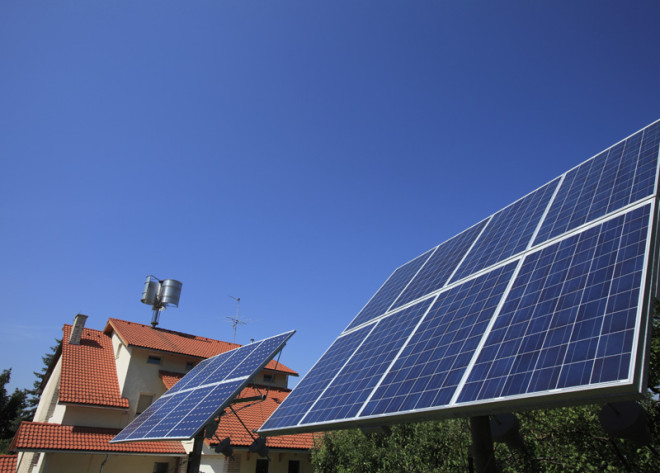From urban gardens and rideshare ventures, to book exchanges and babysitting co-ops – it is easy to see that the sharing economy is thriving. All over the globe, initiatives that offer collective consumption solutions are starting to think outside the traditional business box. One such example is the proposed community solar farm slated for Nelson, British Columbia. If the project goes ahead, it would be the first Canadian solar garden providing residents with clean energy without the installation of panels in individual homes. Nelson Hydro introduced the project after it learned about the successful installation of solar farms in the United States at a conference. According to GTM Research, community solar in the U.S. is predicting a seven-fold market size increase, expanding an estimated half-billion watts annually by 2020. Solar farms provide access to clean, sustainable energy for people who wouldn’t otherwise have access to solar panels. Renters, as well as home and business owners alike can access solar energy without installing and maintaining their own panels. With the strength of the sharing economy behind it, the solar garden concept is a simple, smart solution that literally brings power to the people for a collective benefit. The following is a brief description of how it all works.
Community members invest or ‘subscribe’ to portions of a centrally-installed solar array and the solar energy that is generated is credited to the subscriber’s utility bill in proportion to their investment. At this point in time, the purchasing model and costs for the Nelson project are still in the preliminary planning stages with the City using solar sensors to collect local data to help estimate energy production for the project. According to cost analysis based on a 50kW solar array, it was determined that participating in the community project, as opposed to individual roof installation, will be approximately 30-40% cheaper.
Preliminary models are based on an investment of $1,000 for a 25-year contract for solar panel space that can be paid either as a lump sum or monthly installments of about $3.47 until the panel is paid in full. Depending on the energy production of the solar array, it could take approximately 12 to 15 years for subscribers to break even on their investment. Energy bill credits will depend on the amount invested, the energy produced, and current electricity rates. Once the solar panel space is paid off, subscribers will start to see energy savings. In the meantime, a 25-year contract means long-term energy price stability – something that is not traditionally associated with fluctuating non-renewable energy sources. And according to Carmen Proctor of Nelson Hydro, initial community feedback indicates people are willing to pay the extra costs up front. “It’s about more than trying to save money,” she says.
Interest in the project remains high with over 250 names on the interest list and daily inquiries. The project needs a minimum 75% commitment during the presale phase to go ahead. On June 15, 2015, the project was presented to Nelson’s City Council and plans to finalize the location, costs, suppliers, as well as appropriate bylaw amendments are proposed for completion late this summer with, hopefully, a community information session on the books for the fall.
The Nelson project will be interesting to watch over the next few months as its success could inspire other communities across Canada to follow suit. What’s particularly fascinating about this project is that people are interested in a green initiative despite higher initial costs and no guaranteed, immediate cost savings on their energy bills. Interest in the project seems to be the simple result of likeminded people coming together to achieve a shared goal.
Projects like this are shining examples of the sharing economy at its best: people coming together and working cooperatively to meet needs or achieve goals where traditional business models have failed or no longer work effectively. It’s an approach with a more holistic view of success that values long-term goals of sustainability and social responsibility rather than short-term financial gains. The concept of ‘strength in numbers’ certainly isn’t new, but when we look at how this translates to the rapidly expanding sharing economy, it is exciting to think of the opportunity that exists for significant changes in the way business is conducted.
How do you participate in the sharing economy? What opportunities exist for more collaborative, responsible consumerism in your community?
About The Author

-
Serial Entrepreneur, Technologist and Inventor.
My objective is to develop useful products that have a net positive effect in the lives of those that use them and the environment that we live in.
CEO of Mission LED Lighting Company Ltd.
- 2017.05.24LED factsWhy Are Cars Switching to LEDs if They’re Too Bright?
- 2017.05.09Be green & saveHow to Easily Replace T8 Fluorescent Tubes With LED
- 2017.03.07Build a better future7 Things About Explosion Proof LED Lighting You Should Know
- 2017.02.28Be green & saveWhy We Love LED Grow Lights (And You Should, Too!)





Leave a Reply